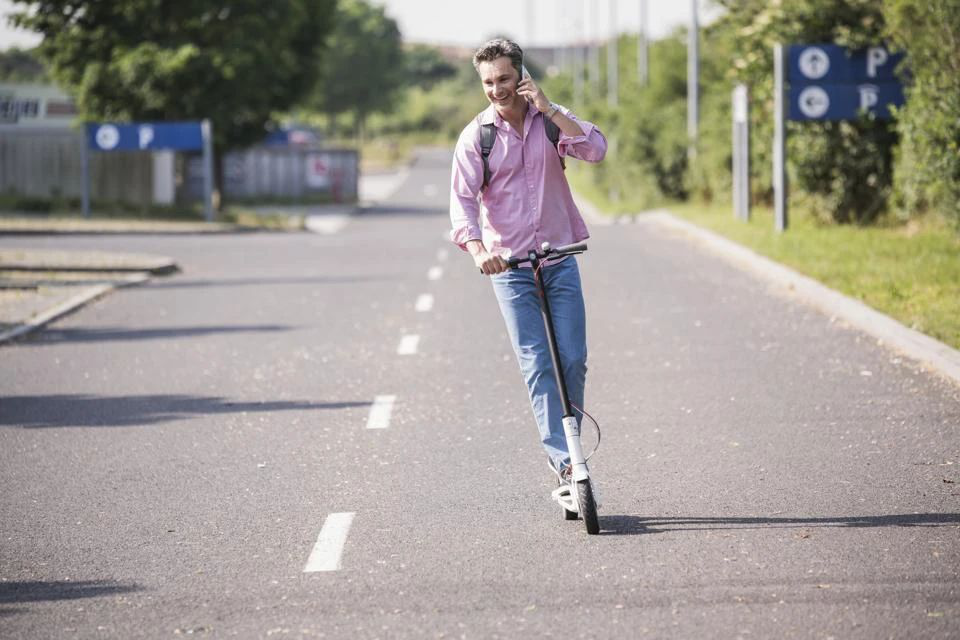

It is said that millennials despise fossil-fuel vehicles, like public transportation, are most worried about climate change, and support the plan of environmentalists to ban the sale of traditional cars firmly.
But that was before the novel coronavirus attack.
According to a survey by the global consulting firm Ernst & Young (EY), millennials between the ages of 24 and 39 are reversing all these assumptions. Due to the novel coronavirus epidemic, they need to wear masks and are inevitably close to unknown environments, public transport has become less attractive. Now, personal confined vehicles are a coveted object for their work and travel.
The report is called 2020 Mobility Consumer Index (2020 Mobility Consumer Index), surveyed in 9 countries, interviewed more than 3300 people. The main finding is that almost one-third of car-free people plan to buy a car in the next six months, and 45% of them will be millennials. In the next 6 months, there will be a car buying boom around the world, especially because of pent-up demand.

In the world of automotive industry conferences, industry leaders frowned upon seeing the future of mobility, claiming that young people are no longer interested in cars and SUVs, and despise them categorically. It has become a cliché. Considering the freedom and prestige of owning a beautiful car, this statement has never made much sense.
After the 2008 financial crisis, young people suddenly became impoverished groups who fail to really afford a car for the first time in decades. So they accepted the need to take a bus or train, knowing it was necessary.
However, the millennial generation not only expressed their willingness to buy a car, but also showed a strong preference for internal combustion engine vehicles.
According to the report: “the non-car owners who are currently looking for a new car, 71% of them plan to buy gasoline or diesel models, only 6% plan to buy pure electric vehicles, and 23% plan to buy hybrid vehicles.”

The author of the Ernst & Young report, John Simlett (John Simlett) said that the novel coronavirus has shaken the car market so as to policymakers will have to solve problem what they think is obsolete: how to deal with the massive increase in vehicles on the road.
The novel coronavirus epidemic is reshaping the market. The growth of global car ownership led by millennials was unthinkable a year ago, especially when it comes to purchasing non-electric cars. The industry should realize that a new market has only emerged recently. “
But as more and more people buy cars, car usage is expected to increase, which leaves policy makers with some very difficult questions: how to accommodate so many cars on the road and seek more diversified travel combinations? How will the trend affect public transportation investment? Quite simply, is this sustainable? If not, what needs to be done and who will do it? “Simlet said.
The use of taxis and public transportation has fallen sharply, while the travel speed of personal transportation such as cars, motorcycles, ordinary bicycles, electric bicycles and electric scooters is accelerating.

This investigation coincides with some conflicting factors. In mid-to-late November, the British government is expected to announce a sales ban on new internal combustion engine vehicles and postpone it from 2030 to 2035. A survey on the UK Power MY EV website shows that the vast majority of motorists support this initiative.
The survey found that almost three-quarters of the interviewees agreed with this view and believed that the decision was necessary in order to protect the planet from the effects of climate change. This radical-sounding answer may have something to do with the fact that it is aimed at a decision that will only be made nearly ten years later.
At the same time, BMW CEO Oliver Zipse (Oliver Zipse) said that any move to ban internal combustion engines in advance will mean that many car buyers can’t afford cars at all, which will bring serious consequences to individuals and car manufacturers.
“If this is the case, we will produce electric cars (driven by the ban), but whether this is particularly wise is another matter, because the consequence of this is that many drivers will no longer be able to afford to drive. ” After the launch of BMW’s new iX rival model for Tesla’s Model X, the Daily Telegraph in London quoted Ziptzer as saying.
The survey was conducted in Sweden, India, Singapore, China, South Korea, Germany, the United States, the United Kingdom and Italy.
“A big question is whether these changes are permanent or temporary. Increasing delays and congestion on the roads may prompt some people to return to public transportation so as to shorten travel time.”
The report said, “but at least until the novel coronavirus epidemic is more controlled effectively, it is difficult to imagine that the passenger flow will return to the previous level.”
Comments